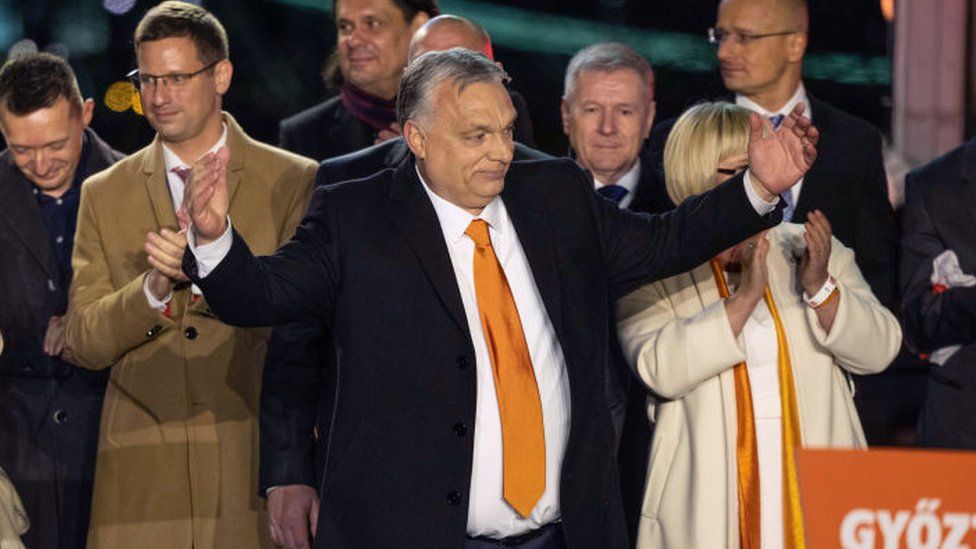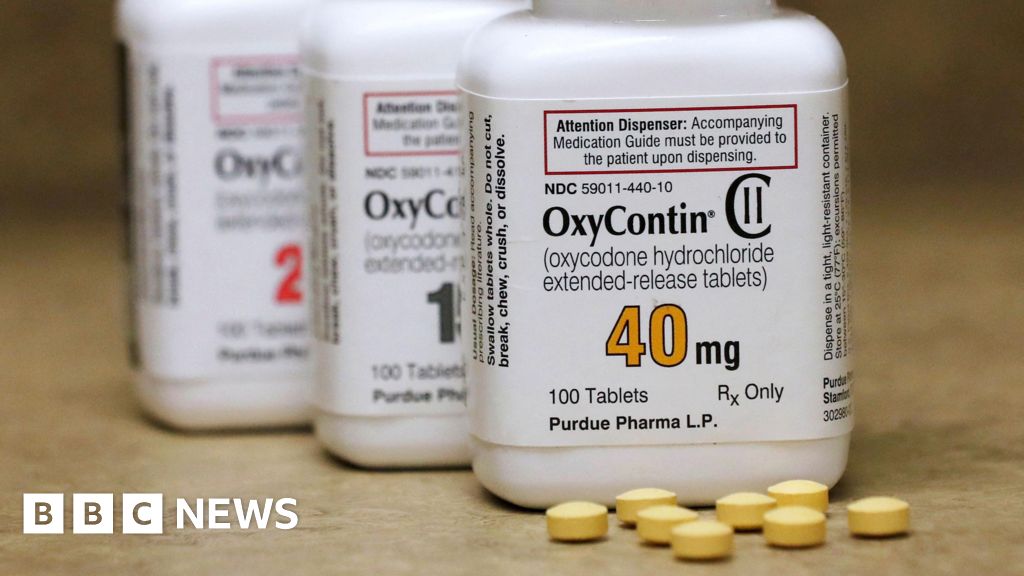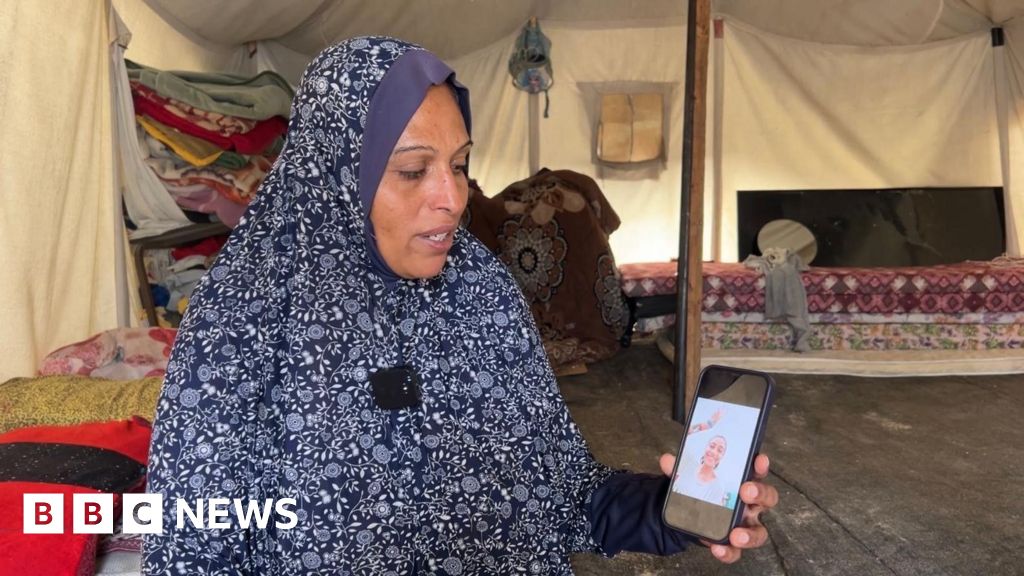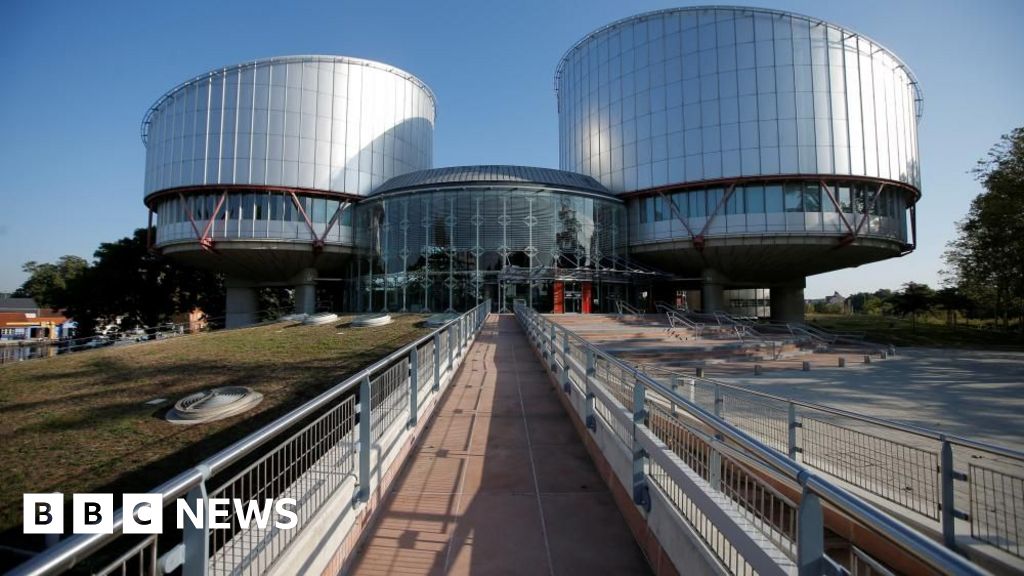ARTICLE AD BOX
 Image source, Getty Images
Image source, Getty Images
Viktor Orban has won four consecutive elections as prime minister
By Paul Kirby & Budapest correspondent Nick Thorpe
BBC News
No serving leader in the European Union has led their country for as long as Viktor Orban.
Since 2010, he has transformed Hungary into what the European Parliament has denounced as a "hybrid regime of electoral autocracy". He appears uncertain how to describe his own invention, but has tried "illiberal democracy" and "Christian liberty."
Either way, he has learned to maintain and constantly strengthen his grip on power.
He has repeatedly clashed with European Union colleagues on migration and the war in Ukraine, and has prevented €50bn (£43bn; $55bn) of EU funds being handed to Kyiv to help Ukraine survive.
Andras Kosa called his 2018 Orban biography Man of Chaos, suggesting he has a skill to present himself as the only solution to the mess created by others.
This is also true of natural disasters.
When red sludge from a bauxite mine engulfed a Hungarian valley in 2010, and a burst reservoir of toxic sludge threatened the shores of the River Danube, he appeared happiest in rubber boots, with his sleeves rolled up, stacking sandbags alongside firemen and volunteers.
Image source, BALINT PORNECZI/AFP
Image caption,Viktor Orban joined firefighters in 2010 when a reservoir of toxic sludge burst
His personal charisma is an unquestionable ingredient of his success, alongside an ability to "think on the ball", as his ex-football trainer once remarked.
Viktor Orban's former political adviser, George Birnbaum, remembers meeting "a very intellectually smart individual". "Someone who… had a well educated, intellectually deep knowledge of things, which is very rare," he told the BBC.
Viktor Orban first made his mark on Hungary in the late 1980s, as the Soviet Union began to fall apart, setting up a political movement called Fidesz, or Alliance of Young Democrats.
He was still a law student at Bibo College in the capital, Budapest, when in 1989 he delivered an audacious, seven-minute speech calling on the Soviet Red Army to go home.
"If we believe in our own power, we are able to finish the communist dictatorship," he declared to an estimated quarter of a million Hungarians gathered in the city's Heroes' Square for the reburial of the man behind Hungary's failed uprising in 1956, Imre Nagy.
Reflecting on his words 10 years later, he said he had "exposed everyone's silent desire for free elections, and an independent and democratic Hungary".
But the democracy that replaced authoritarian rule has changed dramatically during the years of interrupted Orban rule, with widespread complaints of backsliding.
Prof Andras Bozoki, a former culture minister, describes Hungary since 2010 as being "the only one former consolidated liberal democracy in the EU that has reached the level of a non-democratic system as a hybrid regime".
For a Central European leader whose political infancy was rooted in the fall of Russia's hegemony, it seems odd he has become the closest ally in the EU of a Russian president who views the Soviet collapse as the "greatest geopolitical catastrophe" of the 20th Century, and one who began the biggest war on European soil since World War II.
Image source, Getty Images
Image caption,Viktor Orban, here in 2013 (L), is seen as Vladimir Putin's closest ally in the EU
So much about Viktor Orban seems contradictory.
After his 1989 speech, he went on to study liberal political philosophy briefly at Oxford, his scholarship funded by Hungarian-born billionaire philanthropist George Soros.
He abandoned his studies at Oxford early to campaign in 1990 elections, when Fidesz won 22 seats, with Viktor Orban top of the party list.
Veteran Hungarian-born journalist Paul Lendvai sees a staggering reversal - "from one of the most promising defenders of Hungarian democracy into the chief author of its demise".
Sandor Csintalan, both a former ally and critic of Viktor Orban, speaks of "a constant need to radicalise himself", which places him apart from other European conservatives.
George Birnbaum and Arthur Finkelstein, as political consultants, first gave him the idea in 2013 of creating George Soros as an enemy.
"Soros was a good target," said Birnbaum, "because enough people in Hungary didn't like the idea of this billionaire… like the Wizard of Oz, controlling politics and policy, from behind the curtain".
Orban critics find the idea of George Soros controlling "politics and policy" ridiculous.
Mr Soros is Jewish, and posters mocking the financier have been compared to depictions of "the laughing Jew" used in Nazi propaganda. Viktor Orban has used his friendship with Israeli Prime Minister Benjamin Netanyahu, and his support for Israel, to dismiss accusations of antisemitism.
After Mr Orban accused George Soros's civil society groups of "trying secretly and with foreign money to influence Hungarian politics", the Soros-founded Central European University, set up in 1991 as Hungary embraced democracy, was forced to move most of its activity to Vienna in 2019.
Viktor Orban was born in 1963 an hour to the west of Budapest, the eldest of three sons whose father was an agricultural engineer and Communist Party member and whose mother was a special needs teacher.
They had no running water at the family home in Felcsut, a village of fewer than 2,000 people where he still owns a house.
In an 1989 interview, he recalls being beaten twice a year by his father, Gyozo, whom he describes as a violent man: "When he beat me, he also shouted. I remember all this as a bad experience."
Nothing about his childhood suggested that he would go on to challenge the communist regime. He attended a grammar school and was involved in the Young Communist League.
His main interest was football, playing for his local club, FC Felcsut, and he remains highly enthusiastic about his childhood sport. Ten years ago, he inaugurated a controversial new stadium there called the Pancho Arena, where top-flight team Puskas Akademia play to audiences of a few hundred.
In the aftermath of Hamas's attacks on communities in southern Israel last year, he offered the village to Israel's footballers to play their final home qualifying ties for Euro 2024.
Image source, AFP
Image caption,The Hungarian leader has long been a football enthusiast - he is seen here playing in 1998
In the months before he went to university, he carried out his military service, where he says he turned down an approach from the communist secret services to become an informer.
He was 23 when he married fellow student Aniko Levai, whom he met at university. They have five children, four daughters and a son, Gaspar, who was trained by the British Army at Sandhurst and serves as an officer in the Hungarian army in Chad.
Friends from his student days became key members of Fidesz, and his college director Istvan Stumpf went on to take up the role of his chief of staff during the first Orban premiership from 1998-2002.
Image source, TIBOR ILLYES/MTI/AFP
Image caption,Viktor Orban led Fidesz from 1993 and his first election as leader in 1994 was not a success
As a young MP, Viktor Orban and his party joined the global Liberal International movement in 1992.
Political scientist Zoltan Lakner believes Viktor Orban shifted ideology during the second half of the 1990s. As Hungary was governed by a liberal-socialist coalition, he realised "to gain political success he had to turn his back on liberalism and transform his party into a nationalist, anti-liberal political force".
Perhaps the seeds of his reversal were already sown at Oxford. In his few months at Pembroke College, he befriended the conservative philosopher Roger Scruton.
Or perhaps it was more political opportunism.
Viktor Orban became Fidesz leader in 1993, and was already pushing it to the centre right by the time the conservative MDF lost power in 1994. Fidesz filled the gap left by the weakened conservatives.
Peter Rona, an Oxford-based economist and former candidate for president of Hungary, describes a meeting with Viktor Orban in the early 1990s, at which Mr Orban said he wanted to create a "modern Conservative party".
When Peter Rona warned him that earlier politicians who had attempted the same thing had quickly dropped the "modern" when circumstances demanded, Viktor Orban replied: "Then so be it."
Image source, AFP
Image caption,Viktor Orban was Europe's youngest prime minister when he met US President Bill Clinton at the Oval Office in 1998
In 1998, Viktor Orban led Fidesz to election victory, and at 35 became Europe's youngest prime minister, taking Hungary into Nato in 1999.
Two Orban governments were defeated at the ballot box, in 2002 and 2006, and on both occasions the Fidesz leader learned his lessons.
The defeat in 2002 changed him. "The nation cannot be defeated," he told his supporters, as he tried to digest what had just happened.
Back in 1993, he had led his MPs out of parliament when the then Foreign Minister, Geza Jeszensky, suggested that his Hungarian Democratic Forum party had a unique claim to representing the nation.
After 2002, Viktor Orban befriended Arpad Habony, a martial arts instructor and businessman, as his personal guru. Habony remains a trusted ally and component in the business empire which underpins Fidesz, but is rarely spotted in public.
Orban was swept back into office in the turbulence of the global economic crisis in 2010 and has not lost since.
In the past 14 years, he has transformed Hungary with a host of changes to its laws and constitution, winning four consecutive elections with four straight "super-majorities", controlling two-thirds of parliament.
Image source, AFP
Image caption,Viktor Orban's last electoral defeat was in 2006
Since 2010, Fidesz and its supporters have gradually taken control of Hungary's media landscape, replacing foreign investors, says Hungarian media monitor Mertek.
In 2018, almost all "Orban-friendly media" transferred ownership rights to a foundation called Kesma, whose board was made up of Fidesz MPs and the head of a Fidesz-friendly think tank, said Mertek.
A leaked recording ahead of European elections in 2019 revealed how a senior editor at broadcaster MTVA instructed those in charge to follow "the appropriate narrative, method, and direction, mostly about migrants and Brussels".
Migration, the EU and more recently the war in Ukraine have become bread and butter issues for Viktor Orban.
In July 2015, as refugees and irregular migrants entered the EU over Hungary's borders in increasing numbers, he drew a "clear link between illegal immigrants coming to Europe and the spread of terrorism".
The solution was clear, he said: "We would like to keep Europe for Europeans... also we want... to preserve Hungary for Hungarians."
A fence was built on the Serbian border and new laws were introduced criminalising migrants. A "Stop Soros" law in 2018 criminalised those who helped irregular migrants.
The EU's top court ruled Budapest had failed to fulfil its obligations under EU law. It was one of many rulings against Hungary in recent years, culminating in a decision that allowed EU funding for Budapest to be suspended for breaking EU laws.
Image source, EPA-EFE/REX/Shutterstock
Image caption,Viktor Orban sometimes carves a lonely figure at EU summits but he is not without allies
The European Parliament has accused Hungary of backsliding on the rule of law, corruption and LGBT rights.
Viktor Orban argues that the EU is going in the wrong direction on Ukraine, because he believes Kyiv can never win the war. Pragmatic, he may be, but he is closer to Russia's president than any other EU leader.
Hungary also finds itself the only Nato member country not to have approved Swedish membership, even though its prime minister claims to be in favour.
It is a strange position to take and these days Viktor Orban is often cast as a solitary figure, especially at EU summits.
But he is not without allies in the EU and with European elections in June he believes change may be on the way, and on his terms.

 11 months ago
59
11 months ago
59








 English (US) ·
English (US) ·